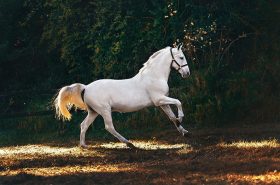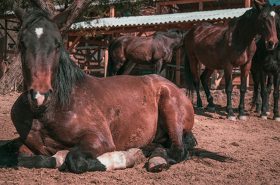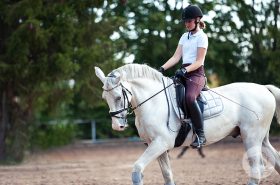A happy horse is thriving both emotionally and physically!
Making your horse happy seems simple enough! You may not think your horse requires that much to be content. And that’s probably true compared to most people. However, the reality is your horse has emotional and physical needs that can’t be ignored. If one area begins to slack, your horse can experience a downward spiral in their health and happiness.
Most horses are extremely willing animals. They try so hard for us! It’s important we return the favor and make sure their needs are met. Try these ideas and you’ll likely have a happier friend.
Routine
Horses have an internal clock! They know when it’s time to be fed, brought in, turned out, and worked. They actually thrive on consistency. It makes them feel safe and comfortable. One of the best things you can do for your horse is create a routine schedule for their daily care and training.
Adequate Nutrition
The saying “you are what you eat” applies to horses too. Your horse is likely to be cranky and miserable if they’re always hungry. Every horse needs the proper amount of forage (such as hay or grass) and fresh water. Some will benefit from grain and supplements.
Furthermore, the quality of the food is also important. Dusty or moldy hay can make your horse sick. Poisonous plants or trees can cause various issues including colic.
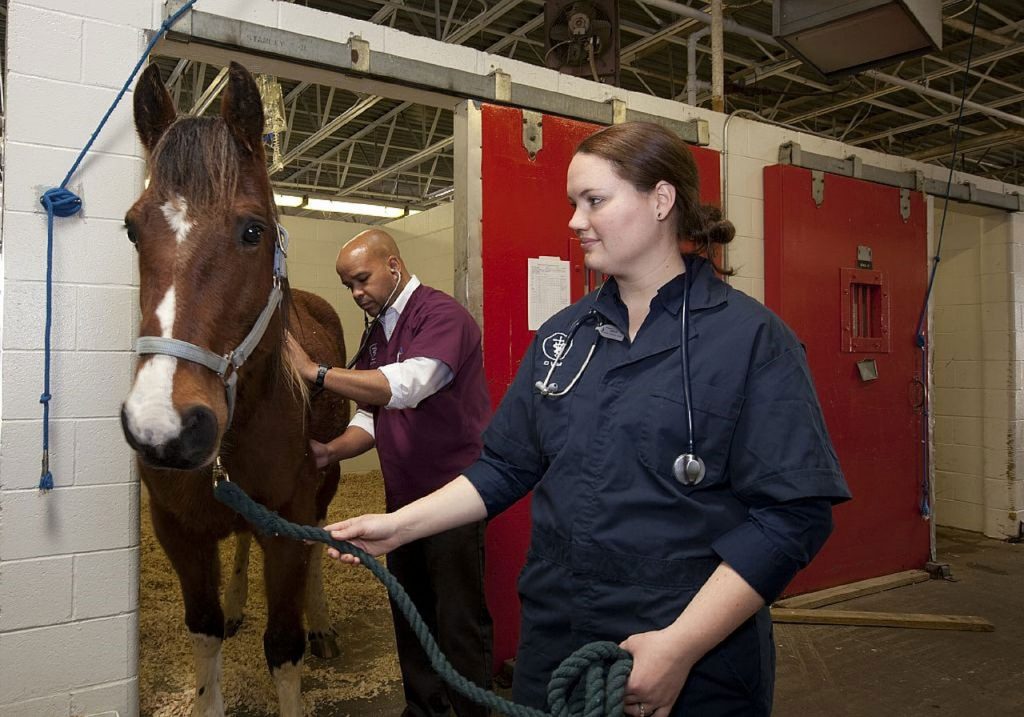
Regular Vet and Farrier Care
Minimally, your horse will need annual vaccines, their hooves trimmed, teeth floated, and deworming. Some are more accident prone, so an emergency fund can be helpful to have. Never ignore a horse that is acting abnormal. It’s essential you learn your horse’s normal behavior and vital signs. A healthy horse is usually a happy horse.
Turnout
Most horses enjoy outdoor turnout. It’s natural for your horse to roam and graze throughout the day. Fresh air, exercise, and sunlight can greatly improve your horse’s well-being. It gives them a chance to de-stress! They can roll, buck, and gallop. Your horse needs that time to… be a horse.
In some cases, the weather or bugs can cause them to become uncomfortable out in the field. Use your best judgement! Even stretching their legs in an indoor is better than nothing.
Companionship
Horses are social creatures and crave companionship. Ideally, a herd environment with horses is available. Goats, donkeys, and cows can work as alternative friends though. Loneliness can cause depression in a horse. They can even develop vices like weaving, pacing the fence line, and cribbing. At the very least, try to put them in eye sight of another horse.
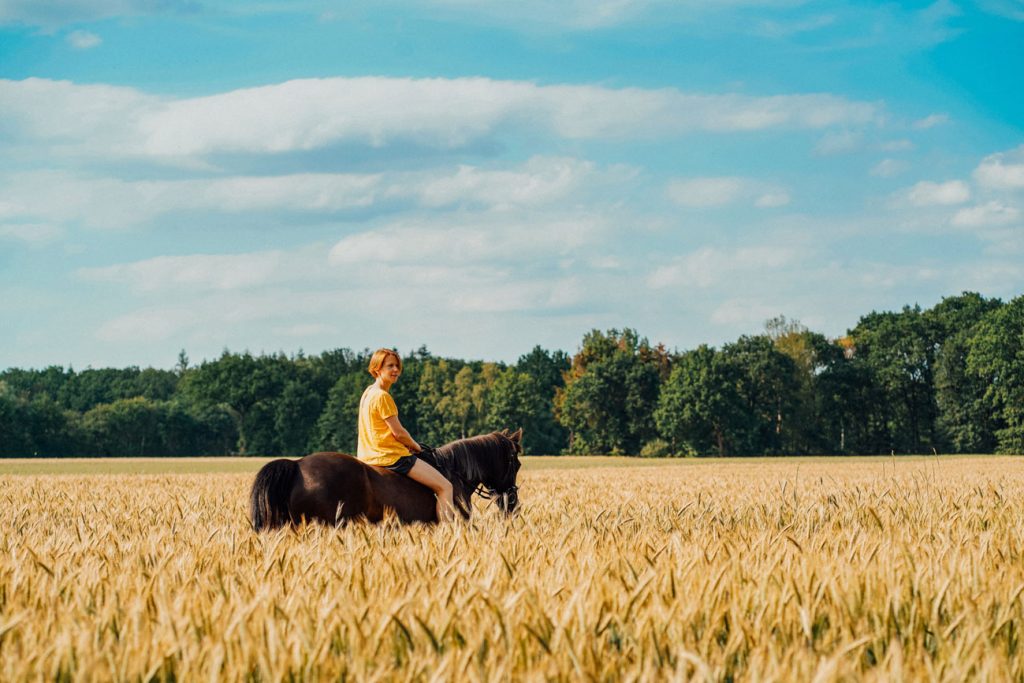
Exercise
Many horses actually enjoy the mental stimulation of being ridden or worked. When you exercise your horse, you also form a relationship with them. It can be a win-win! Riding, lounging, driving, or even hand walking can also keep their body in shape. That’ll help them feel their best. Furthermore, it gives them a purpose. Many horses love their job and you can feel their excitement.
On the other hand, over-exercising can be stressful for your horse. If you want them to be happy, make sure to give them days off to relax.
Mental Simulation
There are a few miscellaneous things you can do to make them happy, as well. These include grooming, turning on a radio, adding toys to their stalls, and trying new disciplines. This’ll keep them from being bored! Don’t be afraid to try something new. Take them to the beach, go on a different trail path, experiment with clicker training… the options are endless!
Horses are easy to please. Pay attention to their health and offer a stimulating environment and you’re likely to have a happy horse on your hands!
**
Emily Fought discovered her passion for horses early on in life. When she isn’t writing about them, you can find her in the barn riding. Although Emily’s background is in dressage, she enjoys cross-training and is an avid trail rider. She resides in Northwestern Pennsylvania with her husband and small dog. Together, they own and operate Humblewood Farm.

